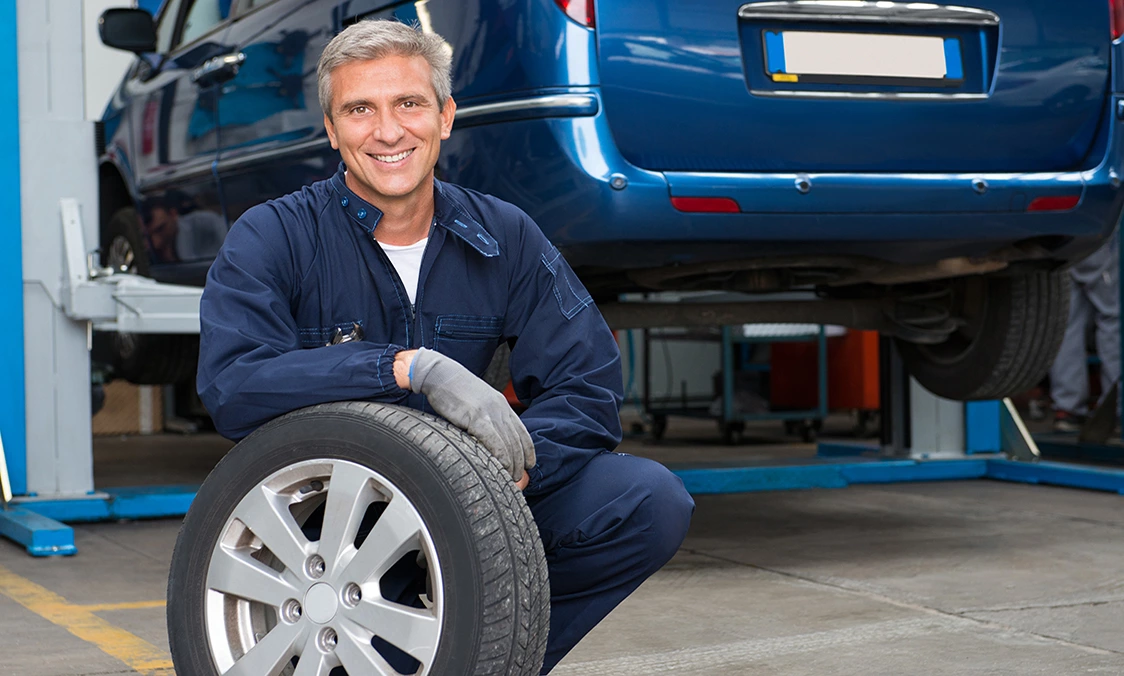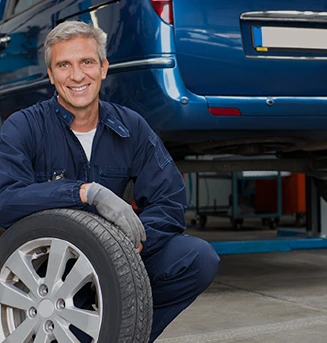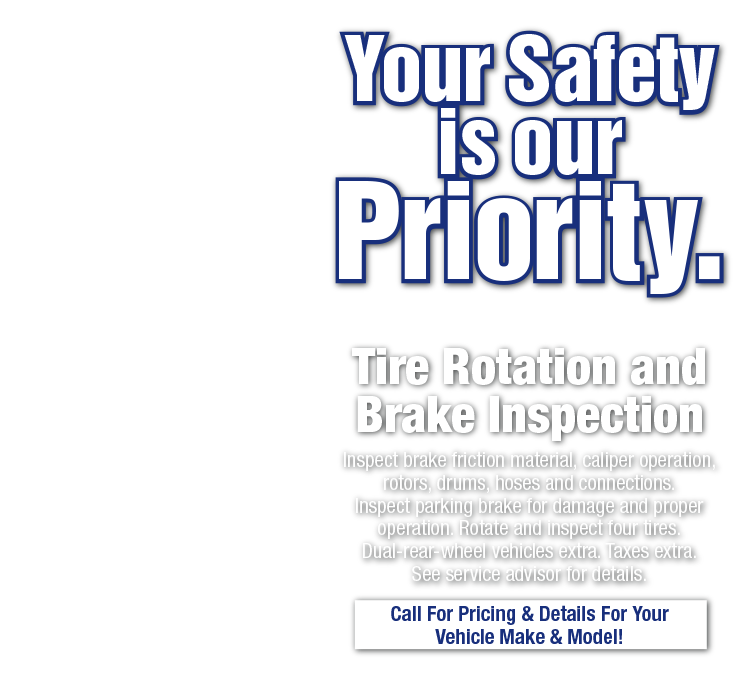When Metal Meets Metal (Wheel Bearings)
August 25, 2019
What part of your vehicle has little metal balls inside that are lubricated and allow you to cruise on down the road? They are wheel bearings, and automotive designers might argue they are human beings' second greatest invention of all time (the first is, of course, the wheel!).
You have a wheel bearing at each wheel. They allow your wheels to turn freely, minimizing friction that would ordinarily slow you down when metal meets metal. When one of your wheel bearings starts to go bad, it lets you know. A wheel bearing does its work quietly when it's in good health but starts getting noisy when it isn't. People describe the noise differently. Sometimes it sounds like road noise, a pulsating, rhythmic, sound. That pulse speeds up when your vehicle speeds up.
Here's what's happening when you hear that sound. As mentioned, the bearing has these little metal balls inside a ring. They have a lubricant inside to reduce friction between the balls; modern wheel bearings are sealed and they're intended to do their job without any maintenance.
Wheel bearings take a beating; you hit some rough potholes or go over some uneven railroad tracks. Sometimes water can get into a bearing and reduce the ability of the lubricant to do its job. Time starts to take its toll, too. When the lubricant isn't reducing friction like it should, the bearing can heat up. One of those little balls can start shedding pieces of metal and soon those shards start grinding up the other balls. Friction takes over and soon your wheel isn't turning smoothly. That's what's causing the sound. If a wheel bearing is not fixed, it could eventually seize up completely, and you can be stranded.
It's a lot easier if you heed the early warning signals, that pulsating noise. Now, sometimes a similar noise can be caused by a bad tire, but in either case, it's important to have it checked out. Our Auto Lab Livonia technicians will be able to tell you fairly quickly what the problem is and offer a solution.
Wheel bearings generally don't fail often and usually last from 85,000-100,000 miles/140,000km to 160,000km. But consider them a long-term maintenance item that, once fixed, will keep you heading smoothly to the next destination.
Auto Lab Livonia
36251 Five Miles Rd
Livonia, MI 48154
734-432-6000
http://www.autolablivonia.com
Need Service?
More articles from Auto Lab Livonia

Engine Air Filter from Auto Lab Livonia
May 12, 2024
Many Livonia drivers have found themselves in the following situation: They go to get their oil changed and their friendly service advisor at Auto Lab Livonia recommends a new engine air filter. They say yes, but don't know what an air filter is or what it does.If this has happened to you, rest ... More

Smart Livonia Drivers Protect Against Overheating
May 5, 2024
Engines get hot when they run. This heat can build up and damage vital engine parts, so engines need a cooling system to keep them running. Cooling system failure is the most common mechanical failure in vehicles. This is unfortunate, because these failures are usually easy for Livonia drivers t... More

Deep Clean Your Fuel System at Auto Lab Livonia
April 28, 2024
Having trouble with your fuel system? Bring your vehicle into Auto Lab Livonia for a check up.In today's Auto Lab Livonia auto post, we're talking about fuel system cleaning. The first thing to know is how important it is to have a clean fuel system. Livonia residents need fuel to go, and the cle... More










